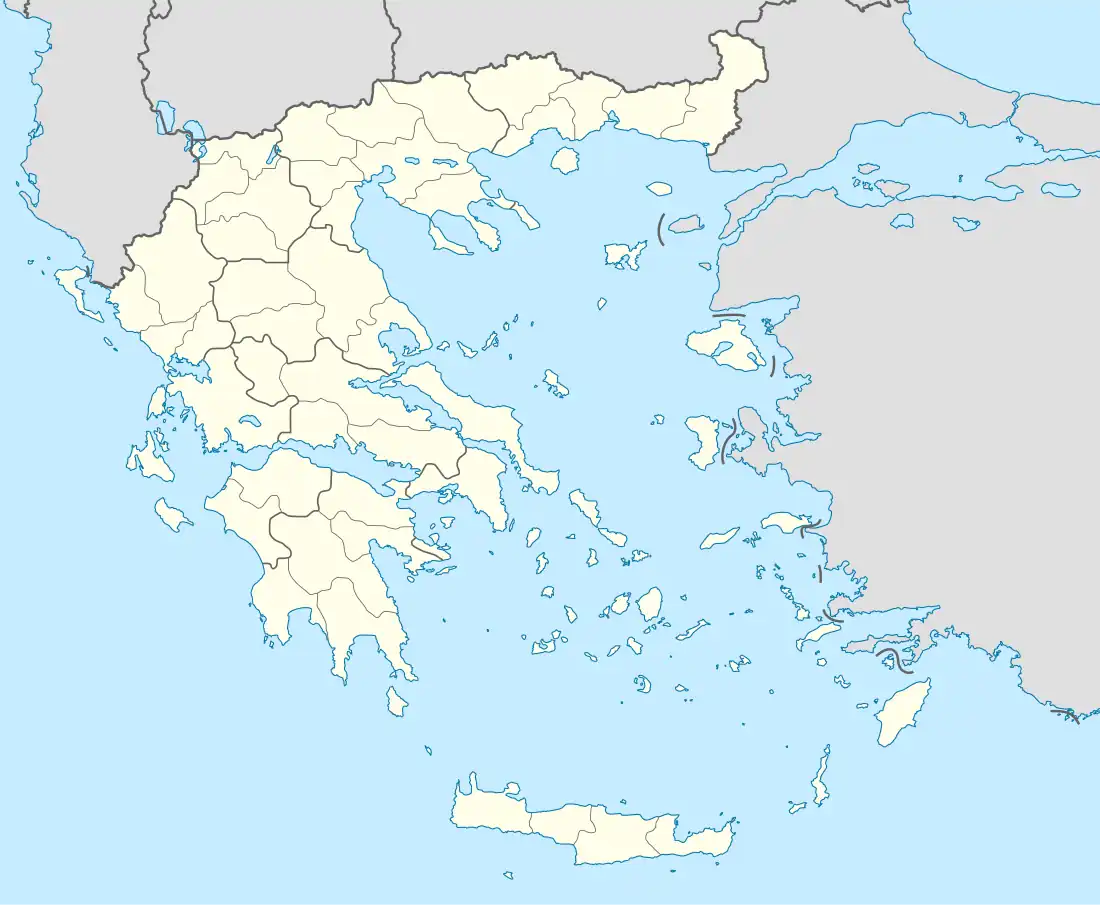Polyplatano | |
|---|---|
 Polyplatano | |
| Coordinates: 40°52′40″N 21°24′25″E / 40.87778°N 21.40694°E | |
| Country | Greece |
| Geographic region | Macedonia |
| Administrative region | Western Macedonia |
| Regional unit | Florina |
| Municipality | Florina |
| Municipal unit | Kato Kleines |
| Population (2011)[1] | |
| • Rural | 257 |
| Time zone | UTC+2 (EET) |
| • Summer (DST) | UTC+3 (EEST) |
Polyplatano (Greek: Πολυπλάτανο, before 1926: Κλαμπουσίστα - Klampousista[2]) is a village in Florina Regional Unit, Macedonia, Greece.
The Greek census (1920) recorded 628 people in the village and in 1923 there were 45 inhabitants (or 11 families) who were Muslim.[3] Following the Greek-Turkish population exchange, in 1926 within Klampousista there were 29 refugee families from Pontus.[3] The Greek census (1928) recorded 742 village inhabitants.[3] In 1928, there were 29 refugee families (128 people).[3]
Polyplatano had 428 inhabitants in 1981.[4] In fieldwork done by Riki Van Boeschoten in late 1993, Polyplatano was populated by Slavophones and a Greek population descended from Anatolian Greek refugees who arrived during the population exchange.[4] The Macedonian language was used by people of all ages, both in public and private settings, and as the main language for interpersonal relationships.[4] Some elderly villagers had little knowledge of Greek.[4] Pontic Greek was spoken by people over 60, mainly in private.[4]
References
- ↑ "Απογραφή Πληθυσμού - Κατοικιών 2011. ΜΟΝΙΜΟΣ Πληθυσμός" (in Greek). Hellenic Statistical Authority.
- ↑ "Name Changes of Settlements in Greece: Klampousista – Polyplatano". Pandektis. Retrieved 30 March 2022.
- 1 2 3 4 Pelagidis, Efstathios (1992). Η αποκατάσταση των προσφύγων στη Δυτική Μακεδονία (1923-1930) [The rehabilitation of refugees in Western Macedonia: 1923-1930] (Ph.D.). Aristotle University of Thessaloniki. p. 75. Retrieved 30 March 2022.
- 1 2 3 4 5 Van Boeschoten, Riki (2001). "Usage des langues minoritaires dans les départements de Florina et d'Aridea (Macédoine)" [Use of minority languages in the departments of Florina and Aridea (Macedonia)]. Strates. 10. para.1. "l’arvanitika (proche de l’albanais)"; Table 1: Réfugiés grecs; Footnote 2: Le terme « réfugié » est utilisé ici pour désigner les Grecs d’Asie Mineure qui se sont établis en Grèce dans les années vingt après l’échange de population entre la Turquie et la Grèce (Traité de Lausanne, 1924); Table 3: Poliplatanos, 428; S, R, M1, P3; S = Slavophones, R = Refugiés, M = macédonien, P = dialecte pontique"